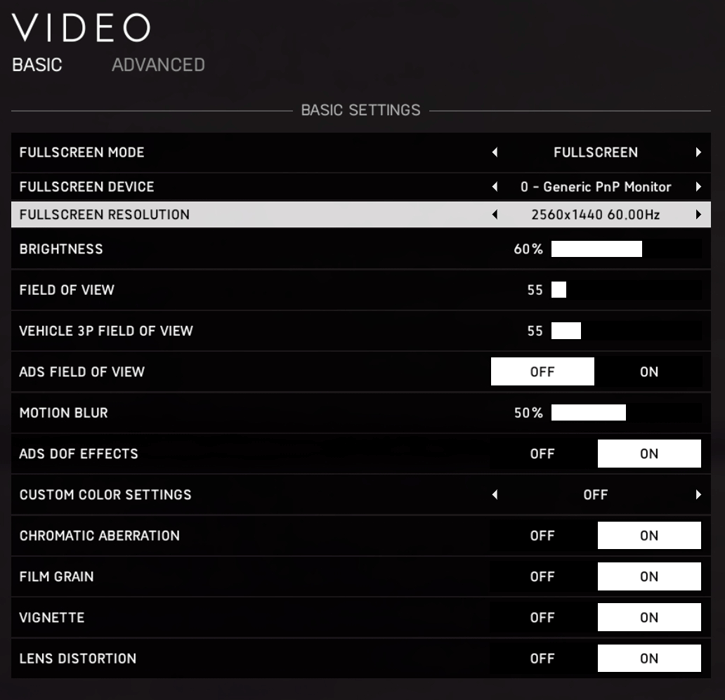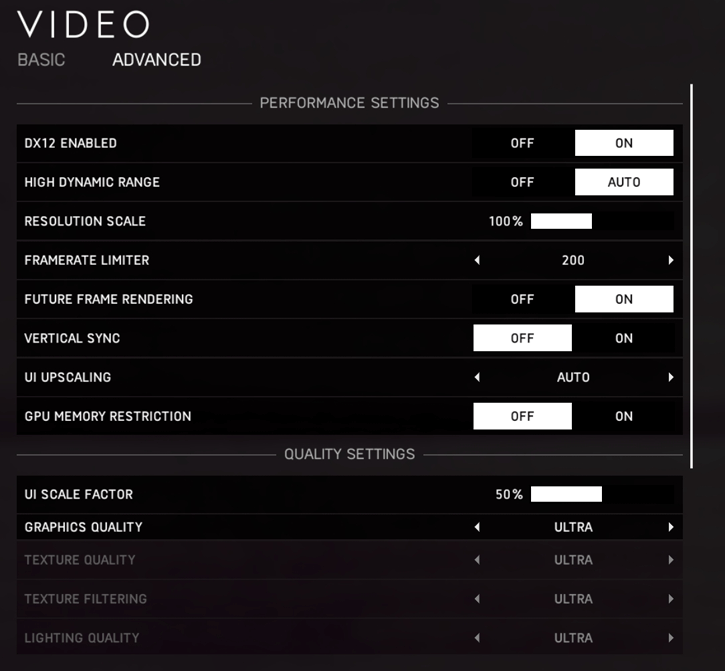Image quality settings and benchmark system
Image quality settings and benchmark system
For this game, we use a run with Ultra image quality settings, the highest possible quality mode. We will test several modern age graphics cards in this D3D12 and D3D11 compatible title performance wise. Games typically should be able to run in the 40 FPS range combined with your monitor resolution at the very least. From there onwards you can enable/disable things if you need more performance or demand even better game rendering quality.
The game is showing plenty PC graphics options like the quality of textures, texture filtering, lighting, effects, post-processing, mesh, terrain and anti-aliasing (TAA) are listed. Ambient occlusion can also be set HBAO. Gamers also have the ability to change the resolution, limit the frame rate, adjust the field-of-view, adjust effects such as vignettes or motion blur, or resolution scale. You can choose DX12, still missing, however, are GeForce RTX related option. Below a couple of screenshots showing the graphics settings.
For our testing we'll disable the video card memory limitations (as we do not want to the card to automatically alter things like texture quality), opt DX12, Ultra Quality mode, VSYNC off, and HBAO on.
Graphics cards tested
In this review we'll test the following cards at the best PC experience, a maxed out quality mode (Ultra) with VSYNC OFF. The graphics cards used in this test:
- Geforce GTX 1050 (2GB)
- Geforce GTX 1050 Ti (4GB)
- GeForce GTX 1060 (6GB)
- GeForce GTX 1070
- GeForce GTX 1070 Ti
- GeForce GTX 1080
- GeForce GTX 1080 Ti
- GeForce GTX 780 Ti
- GeForce GTX 970
- GeForce GTX 980
- GeForce GTX 980 Ti
- GeForce RTX 2070
- GeForce RTX 2080
- GeForce RTX 2080 ti
- GeForce Titan Xp
- Radeon R9 390X (8GB)
- Radeon R9 Fury
- Radeon R9 Fury X
- Radeon R9 Nano
- Radeon RX 470 (8GB)
- Radeon RX 480 (8GB)
- Radeon RX 570 (8GB)
- Radeon RX 580 (8GB)
- Radeon RX Vega 56
- Radeon RX Vega 64
System Specifications & recommended drivers
Our test system is based on the eight-core Intel Core i7-5960X Extreme Edition with Haswell-E based setup on the X99 chipset platform. This setup is running tweaked at 4.20 GHz. Next, to that, we have energy saving functions disabled for this motherboard and processor (to ensure consistent benchmark results). We use Windows 10 all patched up. Each card runs on the same PC with the same operating system clone.
The drivers are:
- GeForce cards use the latest 416.81 WHQL driver (download drivers).
- Radeon graphics cards we used the latest AMD Radeon Crimson 18.11.1 Driver (download drivers).



